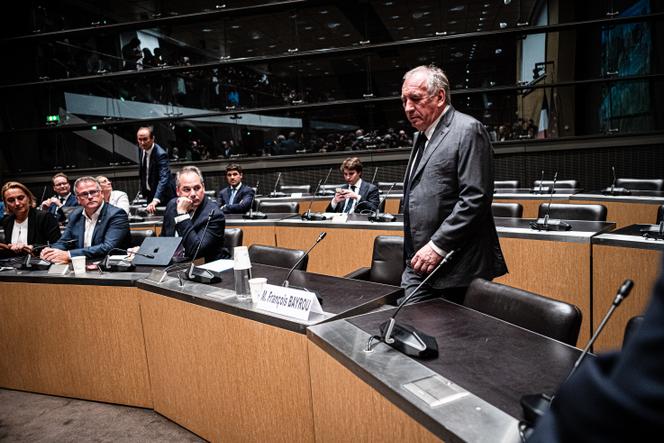

A sitting prime minister explaining himself before lawmakers on one of the most pressing social issues of the moment, for more than five hours: François Bayrou's hearing before the Assemblée Nationale's inquiry commission on "the state's modes of monitoring and prevention of violence in educational establishments," on Wednesday, May 14, was anything but ordinary.
Admittedly, the extended dialogue between the prime minister and the MPs did not clarify all the ambiguities surrounding the scandal, regarding acts of violence and rapes which led to more than 200 complaints against the Notre-Dame-de-Bétharram middle and high school, a Catholic institution located near the southern city of Pau, where Bayrou was, and still is, the mayor. However, though the hearing, which was broadcast live, required better management, it proved useful and revealed the different layers of interpretation in this resounding scandal. It covered a politically awkward matter for the prime minister, who was accused of having covered it up at the time, when he was the president of the local departmental council and education minister. It brought to light the terrible silence that concealed acts of psychological, physical, and sexual violence committed in the renowned religious institution between the 1950s and 2000. Finally, it highlighted the lessons that must be learned today.
On the first point, Bayrou's hearing amounted to a political duel between him and Paul Vannier, a La France Insoumise (LFI, radical left) MP and co-rapporteur of the commission, who never hid his objective: To bring the prime minister down with this scandal. The LFI lawmaker's prosecutorial tone, which demanded confessions – in vain – allowed the prime minister to counterattack, by presenting himself as the victim of a political witch-hunt, repeating that his version of events had "not changed," despite having contradicted himself several times and occasionally failing to recall facts from several decades ago.
All while insisting that he had not been informed of the abuses committed on Bétharram's students, Bayrou stated that "somewhat harsh methods" were accepted "30 years ago in that type of institution." While directly challenging the testimony of the teacher who denounced them in the mid-1990s, he boasted of having, at the same time, as the education minister, issued a memorandum against violence in schools.

From #MeToo to the revelations of widespread sexual violence in the Catholic Church, French society has, it's true, only recently begun to wake up to these realities, and MPs are fulfilling their role as they seek to dismantle the mechanisms that stifle scandals, thwart the principle of protection for young people and prevent victims from speaking out in public.
The crucial question now is whether, beyond the political motivations of its leaders, the commission's work on violence in schools can lead to concrete progress, which would allow victims to genuinely express themselves and implement effective prevention. The Education Ministry's "Break the Silence" operation, which involves anonymously questioning students after school trips and in boarding schools, is a first step. Moreover, the prime minister advocated for the creation of an independent authority on violence against children.
Beyond its role to alert and inform, the MPs' work will prove beneficial, especially if it helps the country transition from a culture of silence to one of listening.
Translation of an original article published in French on lemonde.fr; the publisher may only be liable for the French version.
